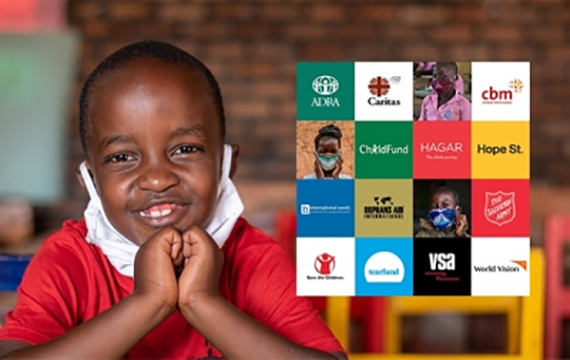FOOD SECURITY & NUTRITION

COVID-19 will impact poor children and see poverty return to historic levels.
Thirteen NZ aid organisations, including cbm are warning that children in low-income countries will be the most affected by the global pandemic and we are encouraging Kiwis to help resource their global neighbours to deal effectively with the pandemic.
The release today of “The State of Food Security and Nutrition in the World” by the UN has prompted the call to action.
Never in recent history have we seen a disaster of this magnitude. COVID-19 is like a slow-moving, invisible tsunami the first waves of which are already quietly devastating the developing world.
Over the last 30 years, extreme poverty had been reduced to about eight per cent of the world’s population. But with COVID-19 now well established in many low-income countries without swift action, we will very likely see a rapid return to historic levels of poverty.
Fractured food markets and rising unemployment, mean hunger levels and the numbers facing starvation are rising. According to the World Food Programme (WFP) more than 270 million people could be pushed into acute food insecurity by COVID-19. This is an 82 per cent increase from before the pandemic took hold.
According to UN researchers, the pandemic could see a further 395 million people plunged into extreme poverty, an estimated 42-66 million of them children.
The more we can do now to reduce the impact the better.
Along with people with disabilities, children are the most dependent and vulnerable in any society. In low-income countries, more will be needed to protect them, not only from the virus itself but also from the downstream effects such as a food security crisis.
“Children and adults with disabilities have been left to die, often not because they contracted COVID-19, but because of the situation the pandemic created around the world”, says Dr Murray Sheard, CEO of cbm New Zealand. “The moment the pandemic hit, the principles of ‘leave no one behind’ and ‘reach the furthest behind’ evaporated into thin air.”
There are many reasons children, especially those with disabilities, suffer.
- Low-income countries do not have our social welfare safety nets or advanced health systems.
- Children and those with disabilities often cannot access wash basins and cannot socially distance because they have less control over who they come into contact with.
- Lack of access to COVID-19-related information for all persons with disabilities.
- Lack of access to the medical services they had in the past, due to diversion of health resources.
- Facemasks are a barrier to communication for children who are heard of hearing.
- Lack of disability inclusion in COVID-19 response efforts at all governmental levels, creating significant disconnections between national and local actions.
“The cbm Global family is active in advocating for accessibility for all children with disabilities in COVID-19-related matters, and we fight to increase disability awareness and inclusion”, says Sheard.
We have been good at looking after our vulnerable neighbours in New Zealand, but our global neighbours need our help too. Those hit most hard need food and supplies, especially those in refugee camps. Children and those with disabilities are particularly vulnerable. Donations from Kiwis will support that work.
The thirteen agencies are Adra, Caritas, cbm, Child Fund, Hagar, Hope St, International Needs, Orphans Aid International, Salvation Army, Save the Children, Tearfund, VSA and World Vision.